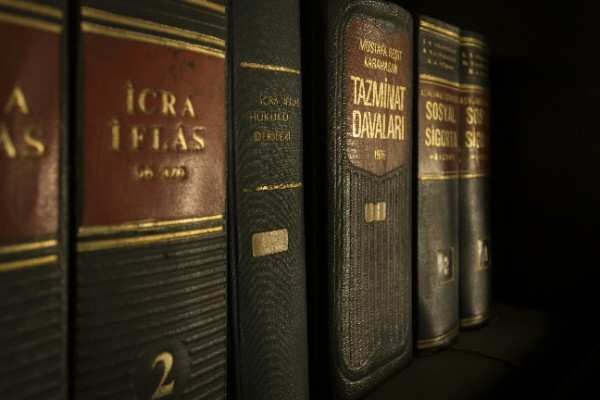Table of Contents
Author Introduction
My name is Haseeb Ahmed Khadim, and I’ve been actively involved in the field of law in Pakistan for over half a decade. Over the years, I’ve worked closely with individuals, legal institutions, and civil society to advocate for justice, simplify legal processes, and educate the public on their fundamental rights.
My work is rooted in the belief that law should be accessible to everyone, not just legal professionals. From guiding families through succession matters to helping citizens understand their constitutional rights, I have always aimed to bridge the gap between complex legal systems and ordinary people.

Requirements to acquire succession in Pakistan:
Islamic law and legal frameworks, such as the Succession Act of 1925, the Muslim Family Law Ordinance of 1961, and the Letters of Administration and Certificates of Succession Act of 2020, regulate the distribution of a deceased person’s assets and debts to their heirs in Pakistan. By describing the relevant jurisdictions, the necessary paperwork, and the required steps, this guide seeks to clarify the inheritance claim procedure in Pakistan.
Inheritance in Pakistan:
In Pakistan, there are two main forms of inheritance:
- When a person dies leaving a valid will, their inheritance is distributed according to their wishes and in accordance with Islamic law.
- Distribution of the inheritance of a person who dies without a will is governed by Islamic law (Sharia).
According to Islamic inheritance law, testamentary freedom is restricted to one-third of the total inherited property. According to the precepts of the Quran, the remainder is distributed among the legal heirs (Zubair et al., 2014).
“A Muslim is legally permitted to bequeath a maximum of one-third of his inheritance to persons who are not his direct heirs.” – Hadith number 2742, from Sahih Bukhari.

Applicable laws in Pakistan:
1. Succession Act, 1925
– Applies mainly to non-Muslims.
– Covers both testate and intestate succession.
– Provides procedures for obtaining probate and letters of administration.
2. Muslim Family Laws Ordinance, 1961
– Section 4 grants orphaned grandchildren the right to inherit from their deceased parent’s share, even if the parent dies before the grandparent (Saikhu, 2024).
3. Letters of Administration and Succession Certificates Act, 2020
– Introduces NADRA’s Succession Certificate System.
– Reduces the need for civil court litigation in uncontested cases.
– Covers the issuance of Succession Certificates and Letters of Administration through biometric verification (LLM Shariah Thesis, IIU).

Forums for Succession Matters in Pakistan:
Succession matters may be addressed by:
– NADRA (National Database & Registration Authority): For uncontested estates under the 2020 Act.
– Civil District Courts: For contested or complex estates.
– Shariah Courts or Family Courts: Where Islamic principles are specifically invoked.
Required Documents for Succession Proceedings:
To start a succession procedure in Pakistan, the following documents are typically needed:
- To confirm identity, use the deceased’s CNIC.
- The Union Council issued the death certificate.
- All legal heirs are declared under oath in this heirship affidavit.
- All heirs’ CNICs for court reference or NADRA verification.
- Asset list and proof, including bank statements and real estate records, etc.
- If applying through NADRA, heirs must provide No Objection Certificates (NOCs).
- Will be subject to Shariah restrictions if testate.
Steps to Obtain a Succession Certificate via NADRA:
1. Initiation: Submit an application at the designated NADRA Succession Center.
2. Biometric Verification: Conducted for all legal heirs.
3. Public Notice: Invited objections within 14 days.
4. Certificate of Issuance: If there are no objections, NADRA issues a Succession Certificate or Letter of Administration.
For more information, refer to the Letters of Administration and Succession Certificates Act, 2020 (Full PDF).
Islamic inheritance distribution in Pakistan
Distribution follows these rules based on the Qur’an and Sunnah:
- Fixed Shares: Spouses, parents, children, and grandparents usually have assigned shares.
- Male vs. Female: Males typically receive twice the share of females (Qur’an 4:11).
- Orphaned Grandchildren: Protected by Section 4 of MFLO 1961 in the event of a predeceased parent (Saikhu, 2024).
- Use a reliable Islamic Inheritance Calculator for an approximate breakdown.
Common Challenges:
- Exclusion of Women: Despite clear Qur’anic commands, cultural practices often deny women their rightful shares (Afghan & Wiqar, 2007).
- Forgery or Hidden Assets: Legal heirs may hide property or falsify documents.
- Disputes Among Heirs: Often lead to extended litigation in civil courts.
Conclusion:
Succession in Pakistan is a legally structured process guided by religious principles. Whether navigating NADRA’s simplified framework or the traditional court system, understanding your legal rights and documentation requirements is vital. Following Islamic inheritance rules ensures compliance with both legal responsibilities and moral obligations.

